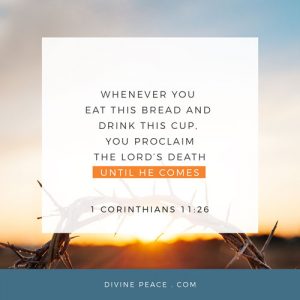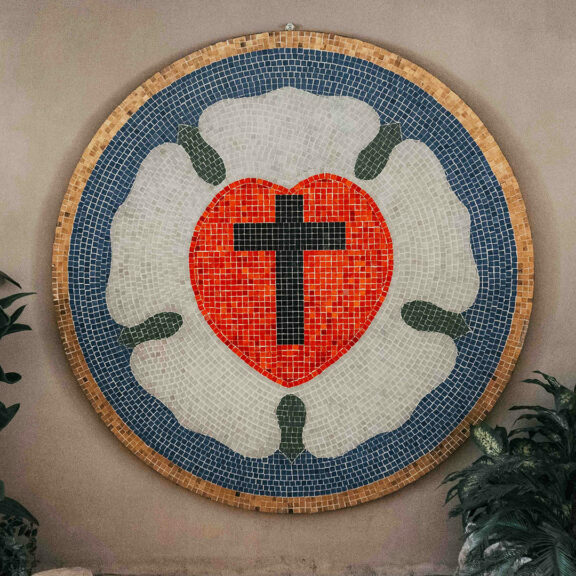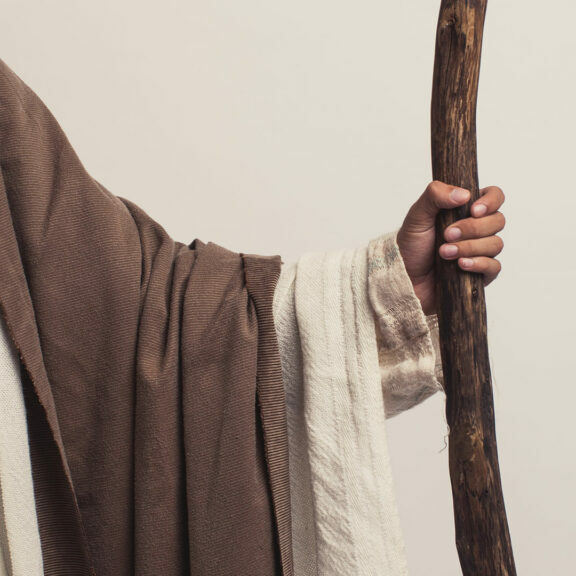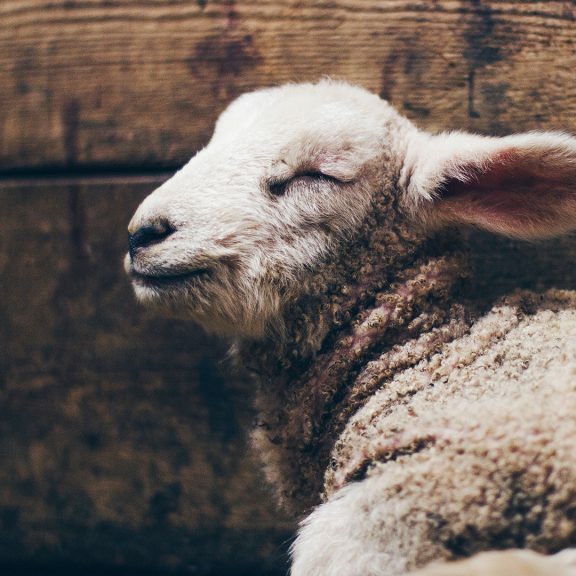April 22, 2017
Pastor Gunnar Ledermann
I’ll never forget the sound of the metal cattle shoot doors opening and slamming closed or the smell of the calves being branded. The red glow of the branding irons sitting in the propane fire. The taste of ribs cooked over an open flame after a long day of running around the corral. And the feel of the wood fence and barbed wire in my hands. When I was a kid my family went over to Nevada to help my uncle round up the beef cattle every year and brand the new born calves. So many of those memories are wrapped up in my senses. Whenever I see a field of cows or taste a beef rib, I’m always brought back to those days helping on the ranch.
Our senses connect us to events. They make our memories stronger, tugging at our emotions. God made us that way. When he created us, he made our bodies in such a way to take in the world around us through smell, sight, sound, taste and touch. We grow, learn and communicate with one another through our senses. They allow us to live, but for all they give us we still face the fact that in time our senses grow dull. In time, what once allowed us to experience life in such vibrant ways, fades away into the cold darkness of death.
Fear of death made them believe they would forget what they experienced that night. It was a night like no other. The meal they had was different. Everyone ate quickly as if they all might have to get up and leave at any time. The bread they ate was different, made without yeast. The bitter herbs served with the meal were unpleasant, but they all ate them. From house to house everyone was eating the same thing, a one year old male sheep or goat without any defects. When they slaughtered the lambs, everyone put blood on their doorframes of their homes and roasted the entire animal over a fire. And anything left over was completely burned up in the fire.
The Israelites never thought they would forget what they experienced that first Passover. The meal was special, but what God did that night was nothing short of miraculous. On the first Passover, God told the Israelites he was going to pass over all of Egypt and kill the first-born son of every family and even of the animals. God said to mark your family as believers and to prevent death from entering your home, sacrifice a one year old male lamb without defect and put its blood on the doorframes of the homes.
God struck down the all the first-born males to deliver his people from their slavery in Egypt. The Passover was the final miraculous sign God performed before Pharaoh’s eyes, which finally caused him to realize he could not fight against the God of Israel. Pharaoh let Israel go free, allowing the Israelites to return to the promised land. They were now free to go to the place God had set aside for them to grow into great and blessed nation. And every year, the Israelites were to remember God’s great deliverance by celebrating the Passover meal, but they soon forgot. They even forgot God’s great power to deliver them from their enemies, leading the people to be conquered, deported and reduced to a small remnant of a once great people.
In our second lesson this Maundy Thursday from 1 Corinthians 11, Paul reminded the Corinthians of the meal they had forgotten. Paul told the Corinthians,
For I received from the Lord what I also passed on to you: The Lord Jesus, on the night he was betrayed, took bread, and when he had given thanks, he broke it and said, “This is my body, which is for you; do this in remembrance of me.” In the same way, after supper he took the cup, saying, “This cup is the new covenant in my blood; do this, whenever you drink it, in remembrance of me.”
 Paul had passed on the Lord’s Supper to the Corinthians. He had explained to them what Jesus instituted at the Passover meal the night he was betrayed. The Passover originally was celebrated to remind the people that God had delivered them from slavery in Egypt and given them the promised land of Israel. Jesus used the Passover to create a new meal with a better promise. Jesus said, the bread and wine are the body and blood of the Lord. Jesus was going to release all people from their slavery to sin and give them eternal life in the true promised land of heaven.
Paul had passed on the Lord’s Supper to the Corinthians. He had explained to them what Jesus instituted at the Passover meal the night he was betrayed. The Passover originally was celebrated to remind the people that God had delivered them from slavery in Egypt and given them the promised land of Israel. Jesus used the Passover to create a new meal with a better promise. Jesus said, the bread and wine are the body and blood of the Lord. Jesus was going to release all people from their slavery to sin and give them eternal life in the true promised land of heaven.
This new meal is the new covenant, the one-sided promise that God delivered all people from sin and death through Jesus’ perfect life and death. When someone eats the bread, and drinks the wine, they also receive Jesus’ body and blood. This meal was special because Jesus instituted it and connected it to his sacrifice that was only hours away. This meal was to be celebrated among believers who understood what their Savior had done for them and that he promised to give them forgiveness when they celebrate the Lord’s Supper as Paul said, “whenever you eat this bread and drink this cup, you proclaim the Lord’s death until he comes.
But the Corinthians lost sight of the significance of the meal, just like the Israelites lost sight of the Passover. In 2 Chronicles 35, we learn that there was a stretch of 300 years where the Passover was not celebrated in Israel, and it showed. The people of Israel were at war among themselves and the neighboring countries. It was a terrible time for the people and the same thing happened to the Corinthians when they lost sight of what the Lord’s Supper was. The Corinthians had turned the Lord’s Supper into an excuse to get drunk, gorge themselves and starve the poor. They were taking the Lord’s Supper for granted and because of their contempt for the Lord’s Supper, they were suffering. Paul’s letters to the Corinthians contain some of the most perverse sins and harsh rebukes for their treatment of one another and of God’s grace.
Our reading from chapter 11 highlights the sin against the Lord’s Supper. Paul warned them that their sins against the Lord’s Supper were not trivial like someone eating too much on Thanksgiving or running out of cookies at Christmas. Paul said,
“So then, whoever eats the bread or drinks the cup of the Lord in an unworthy manner will be guilty of sinning against the body and blood of the Lord.
God meant for the Lord’s Supper to give forgiveness of sins, not bring judgment. God promised that through this meal, he connects us to the forgiveness won by Jesus through his suffering and death on the cross. Therefore, eating of it in an unworthy manner means eating of it in a sinful way. It means taking Jesus’ sacrifice on the cross for granted, abandoning faith and experiencing God’s wrath. In order to avoid this sinful manner of eating the Lord’s Supper, Paul said,
“Everyone ought to examine themselves before they eat of the bread and drink from the cup.
Tonight, we celebrate the Lord’s Supper as Jesus did with the disciples the night he was betrayed. When we come to celebrate the Lord’s Supper, we face the same temptations as the Corinthians. There are temptations for us as sinful human beings that come with celebrating an event over and over again. And we may forget what it means to examine ourselves before we partake of the Lord’s Supper or we may feel guilty for times in the past when we have taken the Lord’s Supper for granted.
In order to prepare ourselves to participate in the Lord’s Supper and be reminded of what God gives us in this meal so that we can leave tonight assured of our forgiveness, rather that afraid we have sinned against the Lord. Let’s join together in the “Personal Preparation for Holy Communion,” from page 156 in the Hymnal. It is printed for you in the program on page 11. I will read the Question and the congregation will respond with the Answer.
Q: What does God tell me about myself in his holy Word?
A: He says that I am a sinner and deserve only his punishment.
Q: What should I do if I am not aware of my sins or am not troubled by them?
A: I should examine myself according to the Ten Commandments and ask how well I have carried out my responsibilities as a husband or wife or single person, as a parent or child, an employer or employee, a teacher or student. Have I loved God with all my heart, gladly heard his Word, and patiently endured affliction? Have I been disobedient, proud, or unforgiving? Have I been selfish, lazy, envious, or quarrelsome? Have I lied or deceived, taken something not mine, or given anyone a bad name? Have I abused my body or permitted indecent thoughts to linger in my mind? Have I failed to do what is right and good?
Q: When I realize that I have sinned against God and deserve his punishment, what should I do?
A: I will confess before God all my sins, those which I remember as well as those of which I am unaware. I will pray to God for his mercy and forgiveness.
Q: How do I receive his gracious forgiveness?
A: His Word assures me that Jesus led a pure and holy life for me and died on the cross for me to pay the full price for all my sins. Through faith in Jesus, I have been clothed in my Savior’s perfect righteousness and holiness.
Q: What further assurance do I have that Jesus is mine and I am his?
A: In Holy Communion, he gives me his body and blood together with the bread and wine as a truly life-giving food and drink to unite me with him and my fellow believers. By means of this sacrament, Jesus not only forgives my sins but sweeps away all my doubts about his love for me, gives me his own strength to live a God-pleasing life, and grants me a joyful foretaste of heaven.
Q: How can I be sure that I receive all these blessings in the Lord’s Supper?
A: I have his own word spoken as his last will and testament on the night before he died. There he tells me: “Take and eat; this is my body. Drink from it, all of you; this is my blood which is poured out for you for the forgiveness of sins. Do this in remembrance of me.”
Q: How will I respond to this priceless gift from Jesus?
A: I will daily thank and praise him for his love to me. With his help I will fight temptation, do my best to correct whatever wrongs I have done, and serve him and those around me with love and good works.
When I look back on my life and see my many sins, I cannot help but feel the weight of them. I know the situations, the sight, sound, smell, taste and feel of moments I fell into temptation and sin. I know those same situations will face me in the future. Our Savior knew all my sins and all your sins when he gave his perfect life on the cross to pay for our sins and give us his perfect life. He assures us of that in his Word. Our God also knows that we were created with our senses. Though we are not yet able to see or hold our Savior, he gave us this Supper as a glimpse of heaven. Tonight, as we take the Lord’s Supper, we Turn to Jesus and Receive a Special Assurance of Our Forgiveness. Amen.



